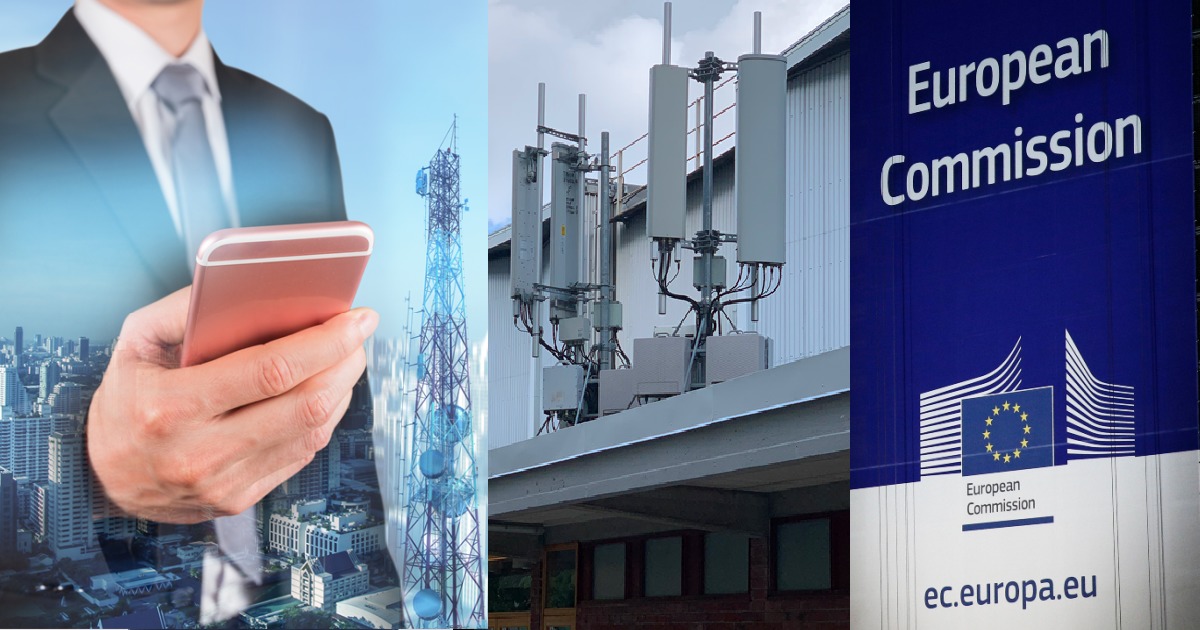Although the European Commission has been informed that radiation from wireless technologies causes harmful effects far below the limits applied in the EU, the health impacts have been ignored. Instead, the economic interests of telecom companies have been prioritized. This is the conclusion of a new review article by Rainer Nyberg, Julie McCredden and Lennart Hardell.
The EU has been repeatedly informed in recent years that microwave radiation (radio frequency radiation) from wireless technologies causes not only tissue heating but also many other harmful health effects, which have been proven beyond doubt. These occur well below the limits set by the controversial organization ICNIRP and recommended by the EU since 1999.
The harmful effects reported to the European Commission in recent years include oxidative stress, damage to DNA, harmful effects on heart, blood, sperms, brain cells and increased risk of cancer, writes the three authors in the new paper.
Too high limits from ICNIRP
The inaccuracy of the ICNIRP limits recommended by the EU has also been highlighted in a review article by scientists of the newly formed ICBE-EMF radiation protection commission. ICBE-EMF concluded in 2022 that the ICNIRP limits are based on a range of misconceptions and lack protection against demonstrated harmful effects.
The EU has also been informed that current applied ICNIRP limits expose all living things in the environment such as birds, insects and mammals to serious risks by allowing radiation levels that have already been shown to be harmful.
Furthermore, the authors of the new article conclude that the EU/ICNIRP limit (10 W/m2 or 10 000 000 microW/m2) is a million times too high to protect children and other particularly sensitive groups from the harmful effects of this form of radiation. Three different research groups recommend maximum exposure of 0.1 – 10 microW/m2 to protect particularly sensitive groups in society.
Violates Charter of Fundamental Rights
The EU’s recommended limits (reference values in Sweden) have given telecom operators the right to forcefully, i.e. without people’s informed consent, expose them to ever-increasing levels of harmful radiation. These permitted forced levels have never been shown to be safe from a health point of view. There are no studies showing that it is possible to expose people to 5G, 4G, 3G over time at levels close to the ICNIRP extremely high levels of 10 W/m2 averaged over 30 or 6 minutes as allowed by the ICNIRP limits. Nyberg, McCredden and Hardell argue that this effectively means that the EU is recommending that citizens be subjected to a massive experiment without their informed consent, in violation of the Nuernberg Code and the EU Charter of Fundamental Rights:
“The EU’s adoption of the ICNIRP guidelines has given operators and producers of digital equipment the right to expose all citizens including children to continually increasing harmful radiation, without being certain of the outcomes of this exposure. This is equivalent to conducting a mass experiment with serious health consequences, without gaining consent from the experimental subjects. That is a crime against the EU Charter of Fundamental Rights and the Nuernberg Code”
Prioritizing economic interests over health
Despite the information reaching the European Commission about harmful health and environmental impacts from both the scientific community and NGOs active in the field, the EU has continued to ignore the serious risks. Instead, the needs and economic interests of telecom companies have been prioritized, contrary to the EU Treaty and case law. These have established that the protection of human health takes precedence over economic considerations. To justify its prioritization of economic interests, the European Commission has relied on a handful of experts with ties to ICNIRP and/or industry, such as in the recent SCHEER report:
“… several experts associated with the WHO and the EU have conflicts of interest due to their ties to industry. The subsequent prioritization of economic interests leads to compromising human health and the environment. Experts must make an impartial evaluation without conflicts of interest.”
These SCHEER experts recommend that the EU should adopt the new ICNIRP limits (2020) which imply even higher permissible radiation exposure, in direct opposition to the recommendations of leading scientists in the field. A critical review of the SCHEER report concluded that the SCHEER opinion is biased and appears to be designed to find no risk and to give a green light to the adoption of exposure limits that favor industry and that the members of the SCHEER working group belong to a small self-referential circle of ICNIRP advocates with links to the telecom industry. SCHEER does not meet the basic requirement for risk assessments: SCHEER’s evaluation of scientific evidence is inadequate, heavily biased and unscientific. A central thread running through the SCHEER report is the creation of doubts about harmful effects instead of an objective assessment of the research results.
Violates fundamental rights
Nyberg et al write:
“The EU’s current course of action is in direct conflict with the foundations on which the EU was built (see Table 1). By maintaining its course to support the industry-led rollout of 5G, 6G and smart meters, the EU is violating the EU Convention on Human Rights [4], the EU Charter of Fundamental Rights, the EU Treaty, and EU Case law, which all agree that: The protection of health and the environment takes precedence over economic considerations.”
In a table (Table 1), Nyberg et al. present the legal provisions that the EU Commission violates by ignoring the health risks and sticking to the seriously erroneous and excessively high limit values from ICNIRP.
Furthermore, the authors conclude that “the EU must respect the EU Charter of Fundamental Rights and EU primary law, which consistently point to the importance of public health and environmental protection as a prime policy imperative. Based on a correct reading of the Precautionary principle and other principles of EU law we ask the EU to impose a moratorium on the 5G roll-out, because it causes massively harmful additions to existing planetary electromagnetic pollution”
Full paper Nyberg, McCredden, Hardell (pdf)







